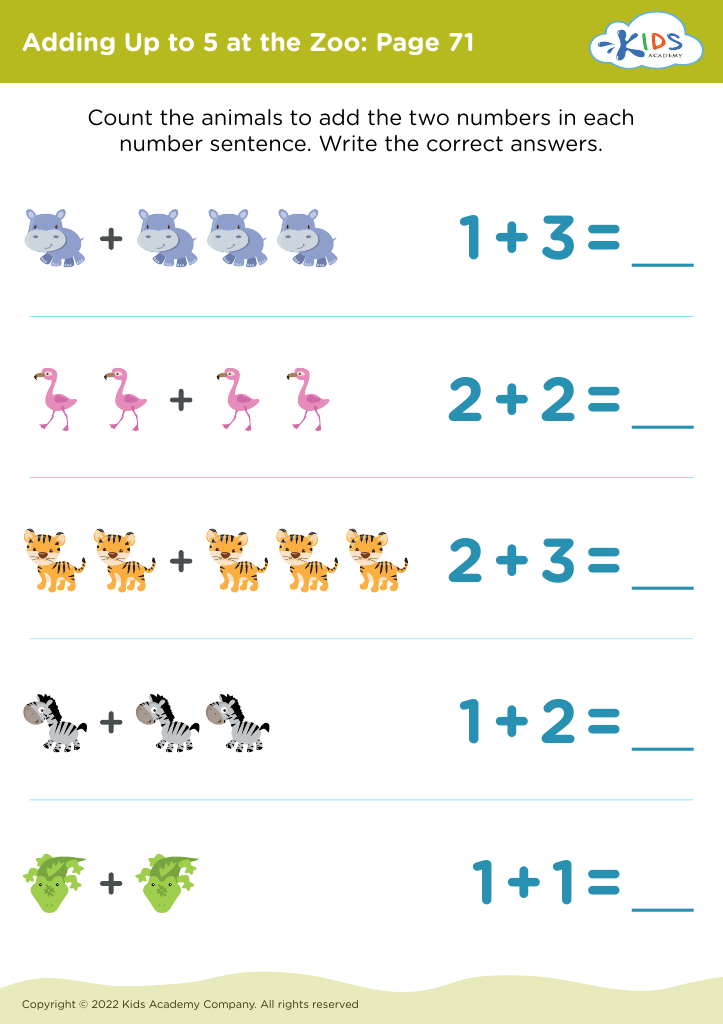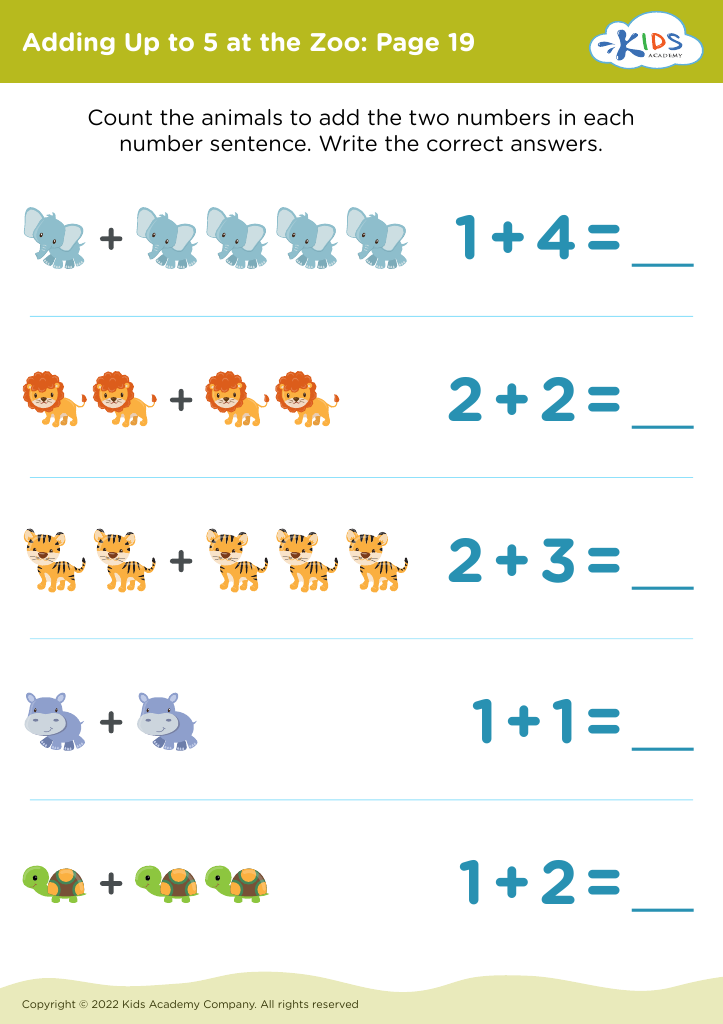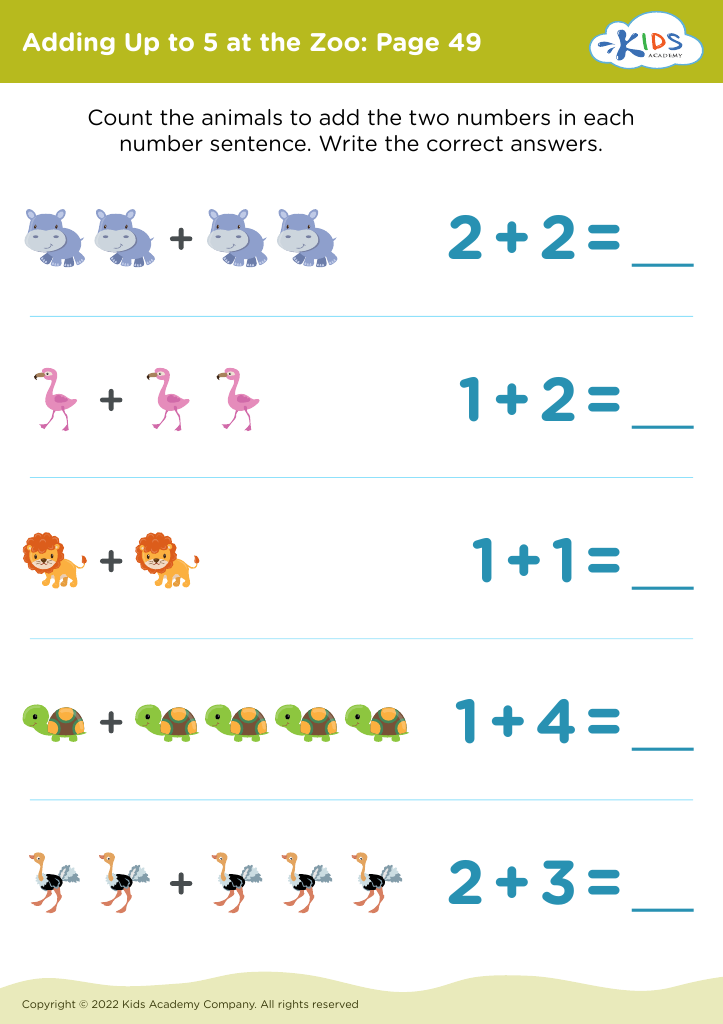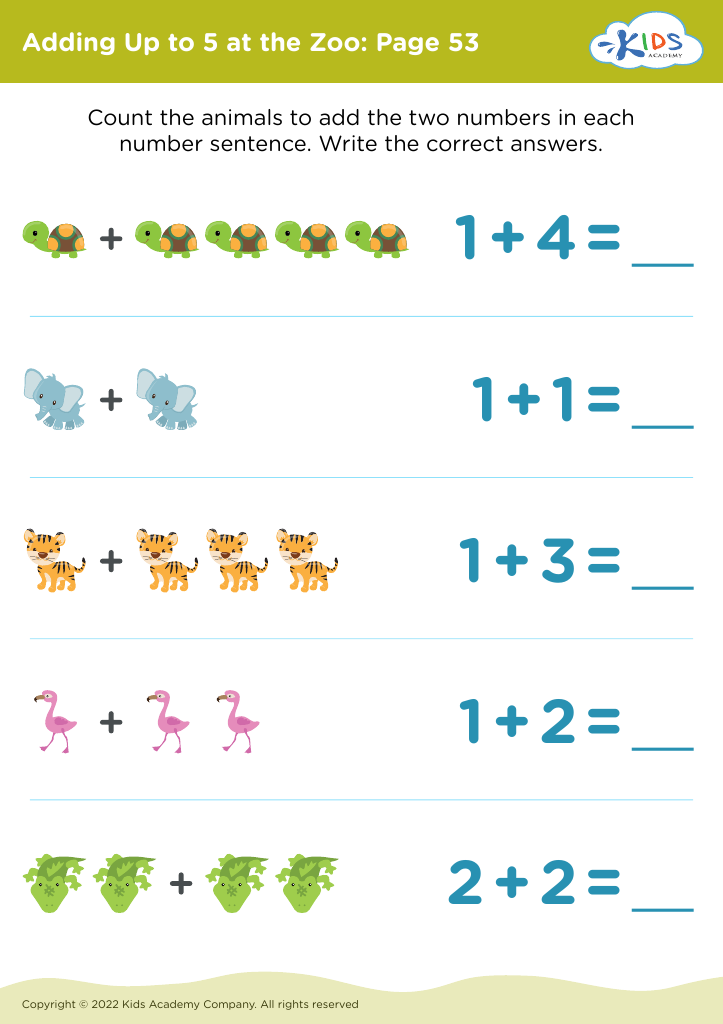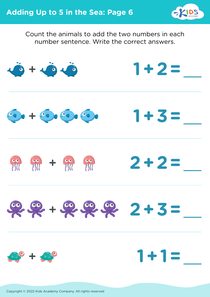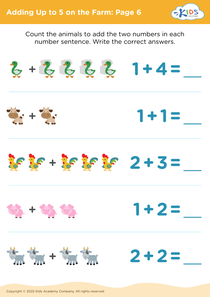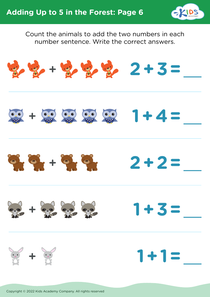Basic arithmetic practice Adding at the Zoo Worksheets for Ages 4-6
4 filtered results
-
From - To
Welcome to our "Basic Arithmetic Practice: Adding at the Zoo" worksheets designed for children aged 4 to 6! These engaging worksheets make learning addition a fun experience as young learners explore the vibrant world of animals. Each page features delightful zoo-themed illustrations that capture children's imaginations while gradually introducing them to fundamental math concepts. Our activities promote number recognition and basic addition skills through enjoyable exercises that encourage both independence and parent involvement. Perfect for classrooms or home use, our worksheets are designed to foster confidence and foundational math skills in early learners. Let the adventure in learning begin!
Parents and teachers should care about Basic Arithmetic practice like "Adding at the Zoo" for ages 4-6 because it lays the foundation for essential mathematical skills. At this age, children are developing crucial cognitive abilities, and engaging them in fun, interactive learning experiences can significantly enhance their understanding of numbers and addition.
"Adding at the Zoo" not only introduces children to basic arithmetic concepts but also makes learning enjoyable through imaginative storytelling and relatable themes. The zoo setting captures children's interest, allowing them to connect math with real-world scenarios, such as counting animals and understanding quantities. This context encourages active participation, making abstract concepts more tangible.
Moreover, early mathematical proficiency is correlated with future academic success. By fostering a love for learning and developing number sense at a young age, parents and teachers can help children build confidence in their mathematical abilities. Introducing fun activities like this can stimulate curiosity, promote critical thinking, and improve problem-solving skills. Involving parents in these activities also strengthens home-school connections and encourages a consistent approach to learning. Ultimately, nurturing basic arithmetic skills through playful practices sets children on a path towards lifelong learning and success in more advanced mathematics as they grow.
